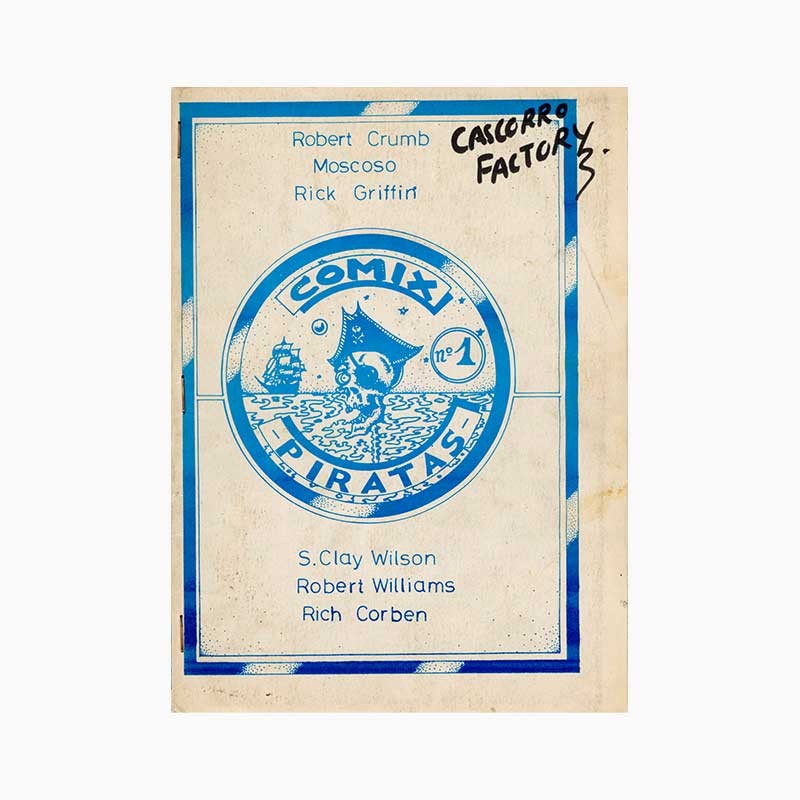
Alberto García-Alix, Ceesepe
Comix Piratas, no. 1, Madrid: Cascorro Factory, 1977
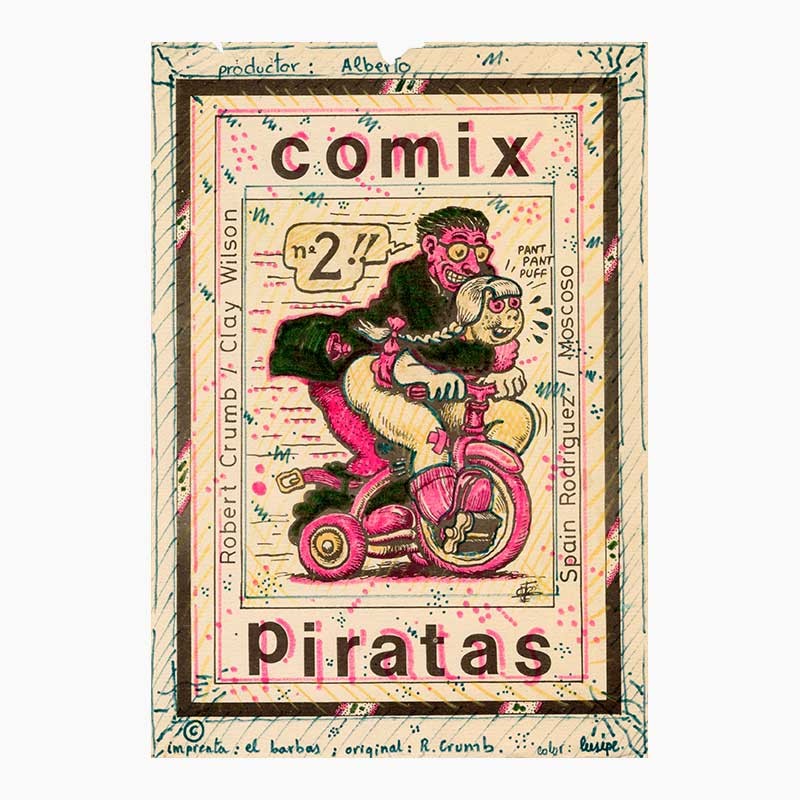
Alberto García-Alix, Ceesepe
Intervened proof of the cover of Comix Piratas, no. 2, 1977

Alberto García-Alix, Ceesepe
Account book of Cascorro Factory, n.d. [1977?]

Ceesepe, Alberto García-Alix
Burbujas de vida, n.d. Mixed media, 30.7 x 21.2 cm
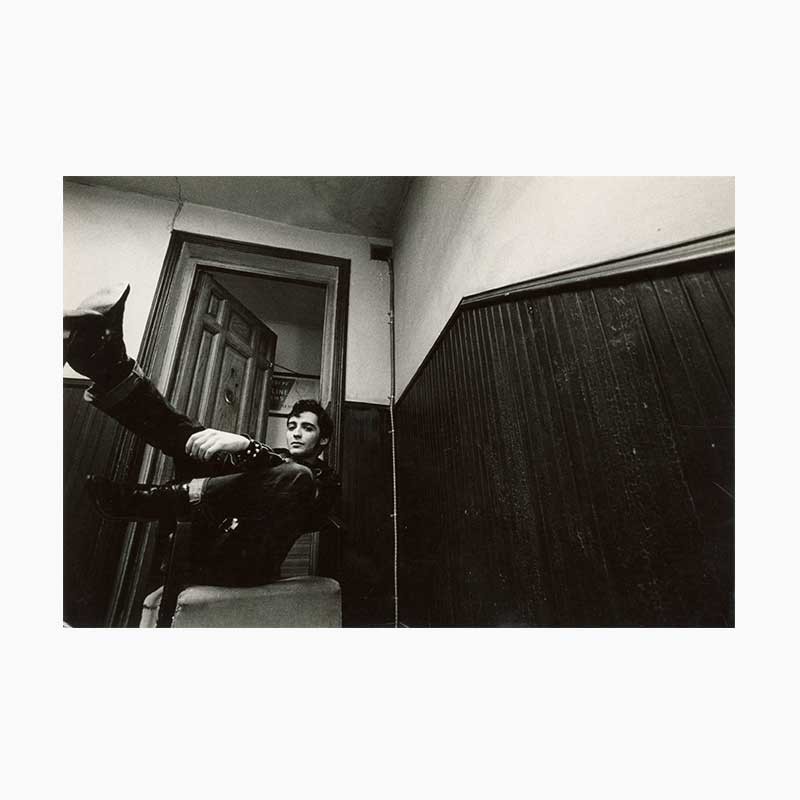
Alberto García-Alix
Selfportrait, 1978

Detail of the interior of a notebook, by Alberto García-Alix, n.d.

Ceesepe
Carbon copy of Zap Comix, by Robert Crumb, 1975. Ink on tracing paper, 29.5 x 20.5 cm
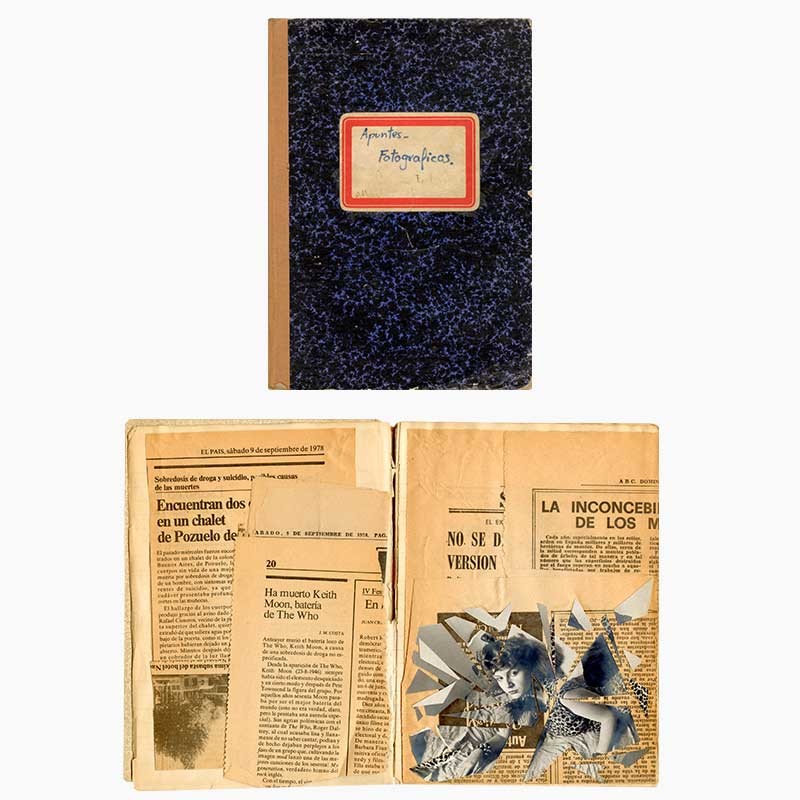
Alberto García-Alix
Notebook Apuntes Fotográficos, 1978 [cover and inside]

Tetas y rabos, outline of Comix Piratas, n.d.
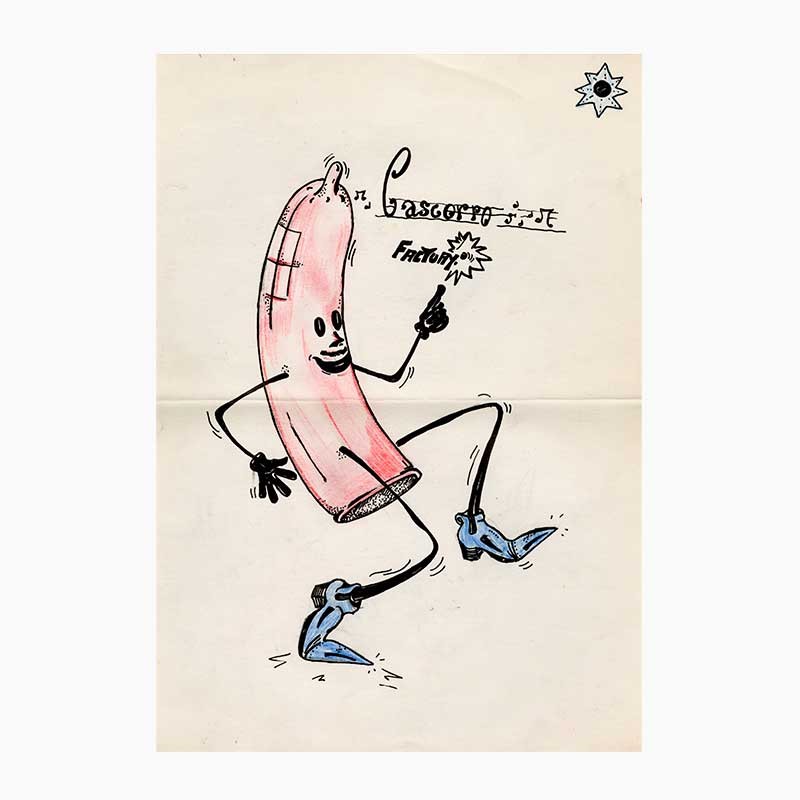
Alberto García-Alix
Cascorro Factory, n.d. Pen and coloured pencil on paper, 29.5 x 21 cm

Plate of the cover of Comix Piratas, no. 2, 1977
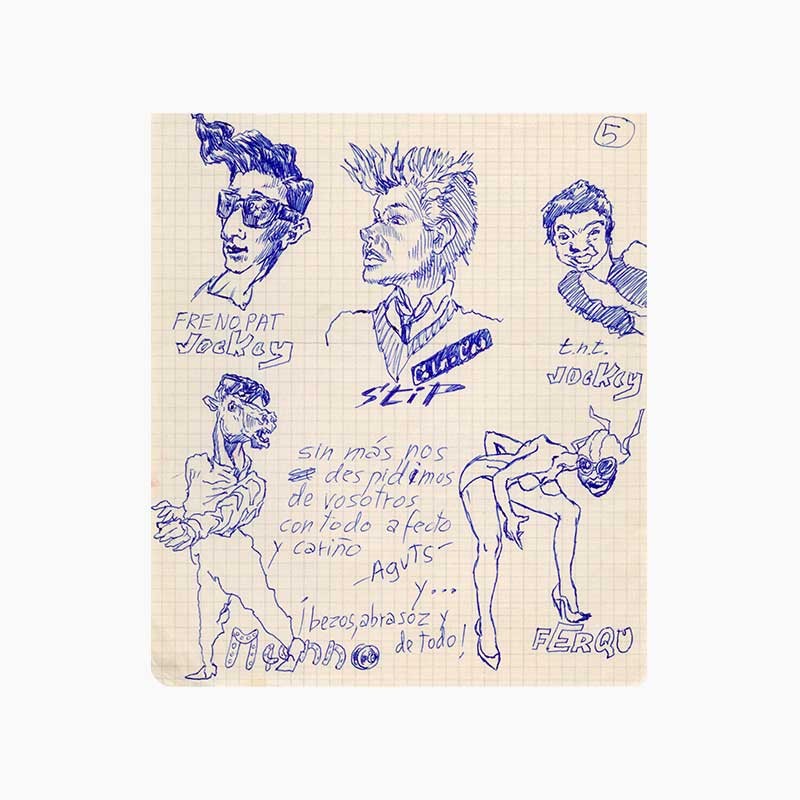
Agust
Drawing sent in a letter from jail, 1981
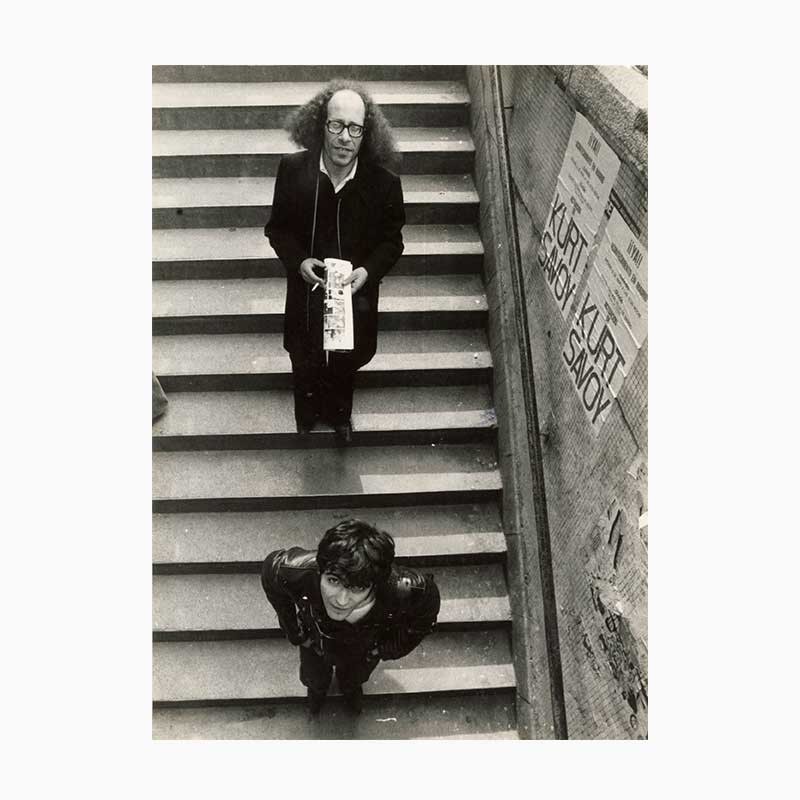
Alberto García-Alix and Juan José Abad, 1978
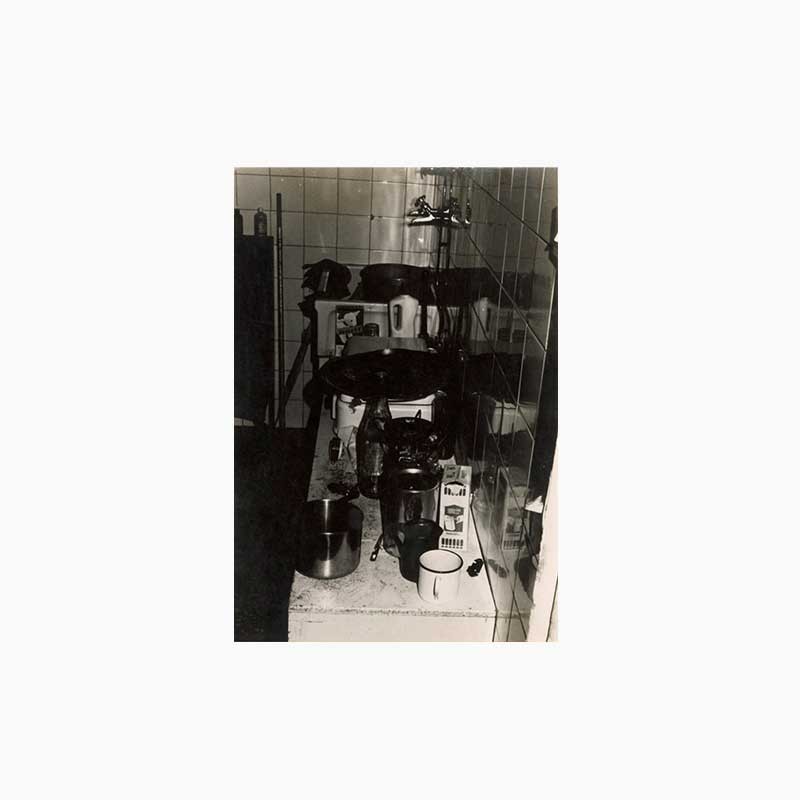
Alberto García-Alix
La cocina de la Cascorro Factory, 1976
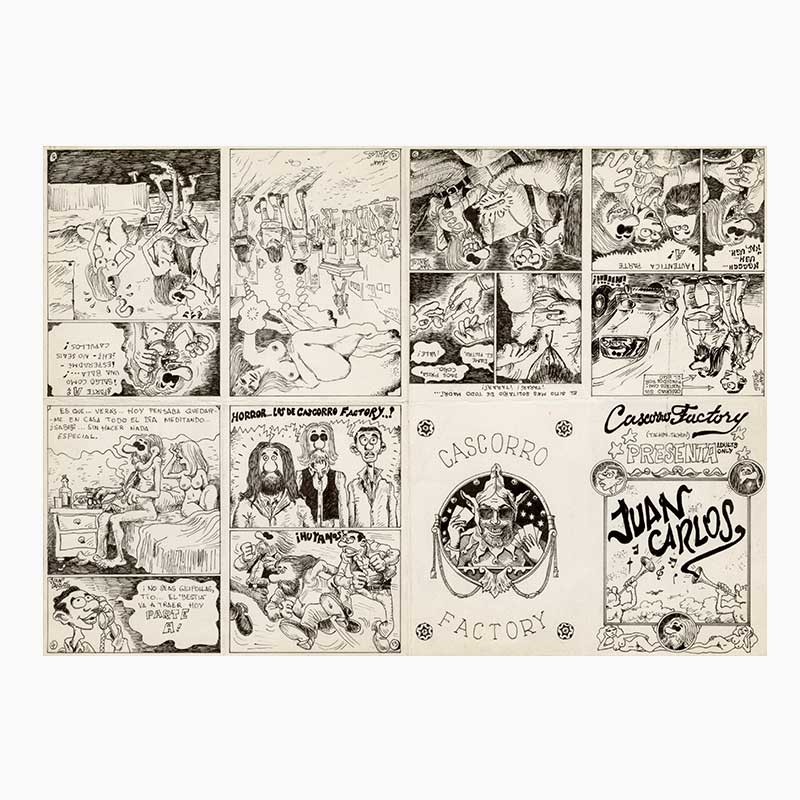
Cascorro Factory presenta Juan Carlos, 1976. Ink on paper, 29.5 x 21
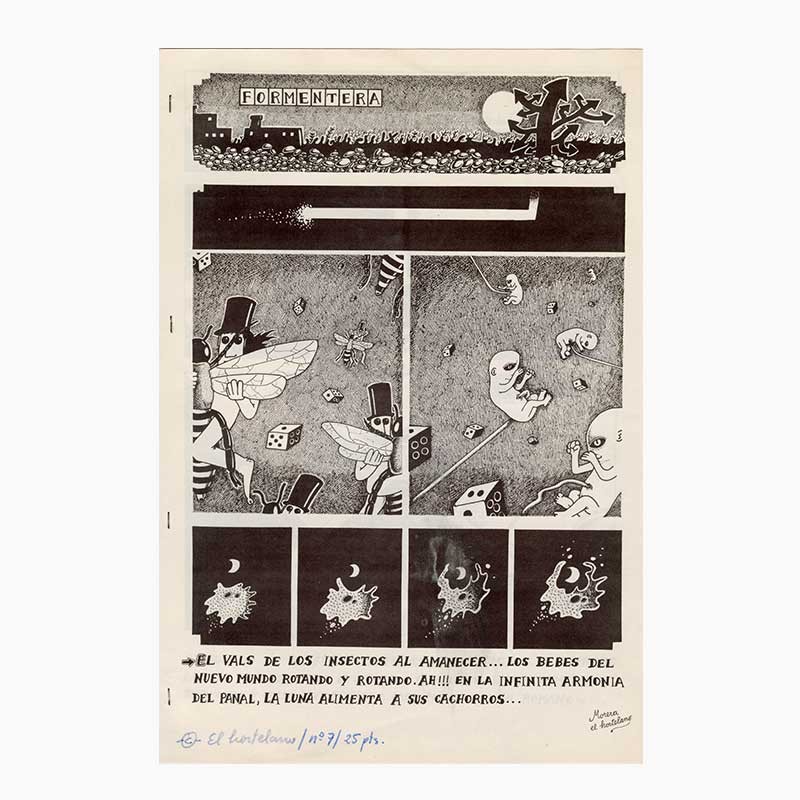
El Hortelano; Alberto García-Alix, Ceesepe
Formentera, Madrid: Cascorro Factory, 29 June 1976
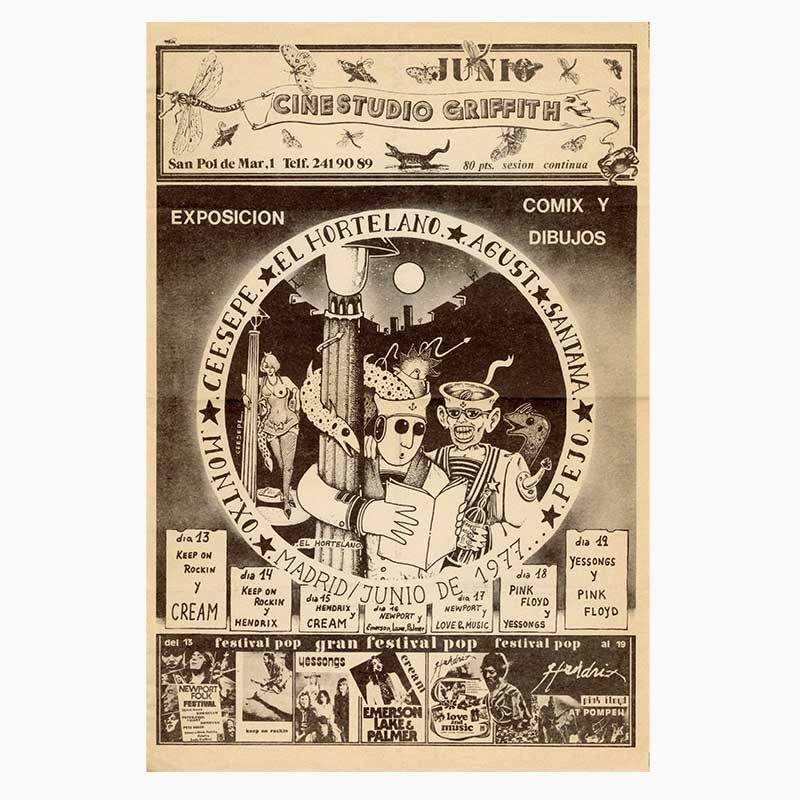
Ceesepe, El Hortelano
Exposición comix y dibujos. Montxo, Ceesepe, El Hortelano, Agust, Santana, Pejo, Madrid: Cinestudio Griffith, 1977. Poster
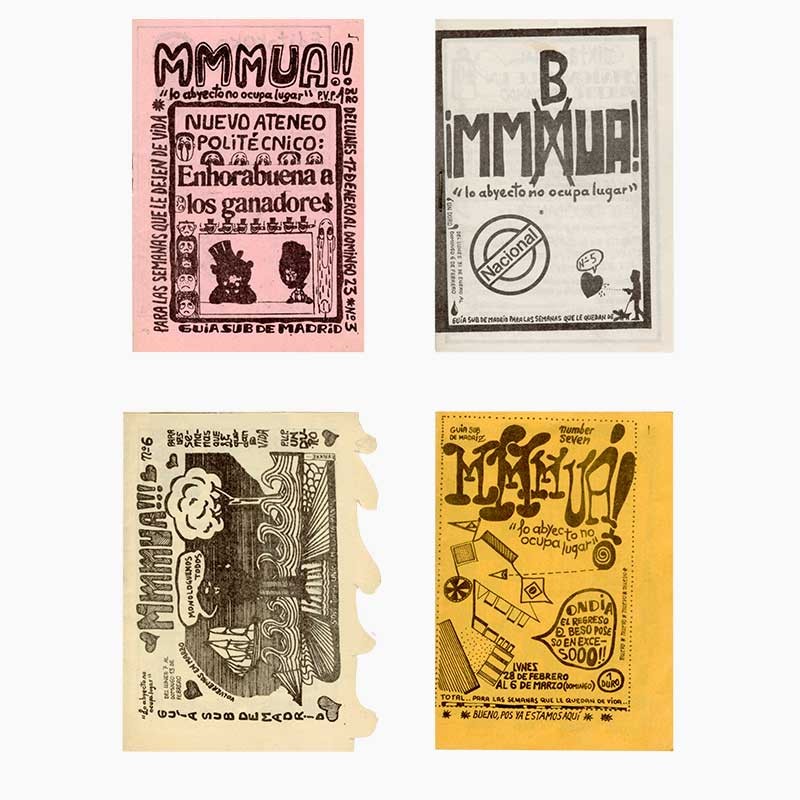
MMMUA!, Madrid: Ediciones Antípodas, n.d. [1977?] [selection]
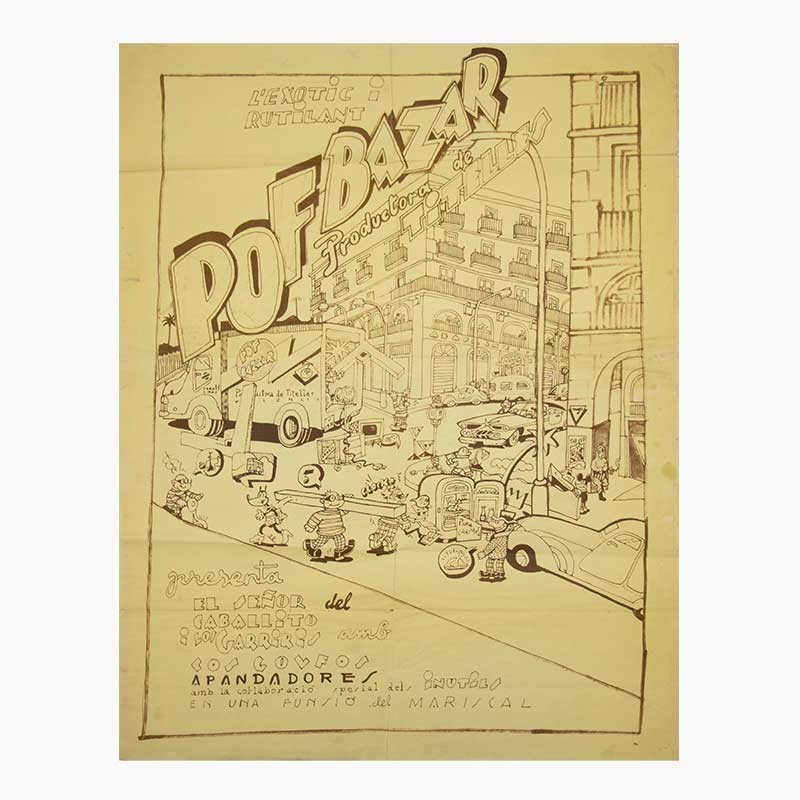
Javier Mariscal
Poster advertising Pof Bazar, n.d. [c. 1976]
200 items.
Founded by Alberto García-Alix and Ceesepe in the mid-seventies, the Cascorro Factory’s center of operations was located in the stall they set up on Sundays at the Rastro flea market on Ribera de Curtidores Street, and in the garret on Encomienda Street near Cascorro Square which Alberto García-Alix shared with Fernando País. This Madrid-based hub of the underground movement in Spain during the second half of the seventies continued the pioneering countercultural work carried out by the cartoonists belonging to the El Rrollo group in Barcelona. Headed by Nazario and Mariscal, its participants included the aforementioned Ceesepe and Alberto García-Alix, as well as Montxo Algora, Marcos Carrasco, Agust, El Hortelano and Mariscal.
Faced with a lack of interest from publishing houses, they self-published their comics under the Cascorro Factory label in a smaller format, which they then sold together with others from fringe publications in Madrid and Barcelona (Mmmua, Star...). They also translated and sold foreign comics, replacing text and speech balloons with collages (first, Zap Comix, and then Comix Piratas). The publication of Vicios Modernos (1979), with drawings by Ceesepe and photographs by García-Alix, was the editorial culmination of this collective artistic project, which also sought to develop works in audiovisual format.
The Alberto García-Alix - Cascorro Factory collection comprises nearly two hundred items, including originals of comics, mockups, drawings, photographs, notebooks, film scripts and letters, printing plates, graphic works, posters, fanzines, catalogs and magazines.